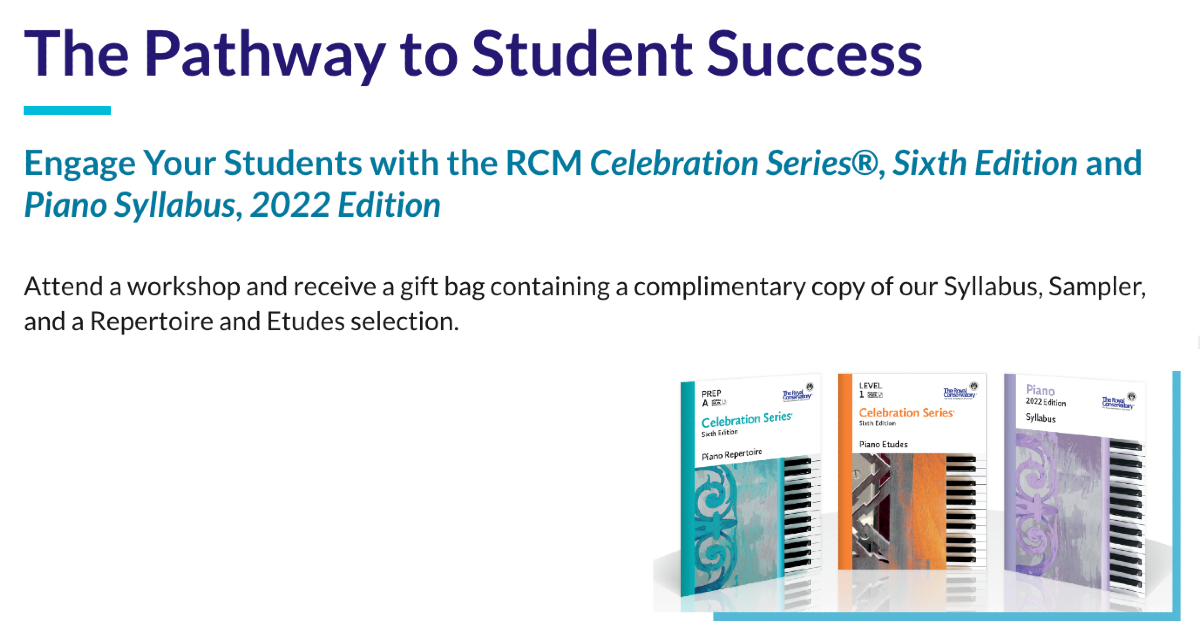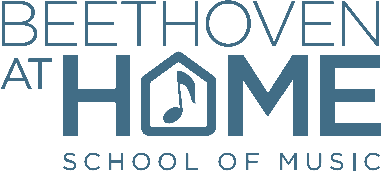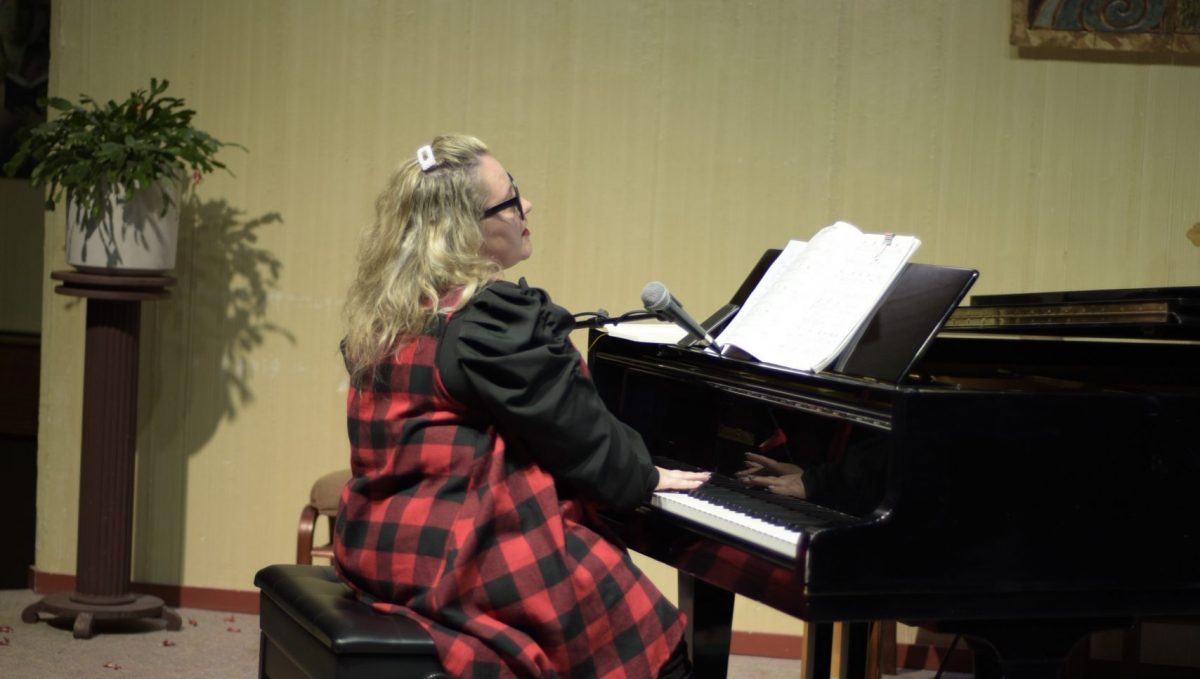A fun workshop in July
At the beginning of July, I was able to attend an RCM workshop “The Pathway to Student Success: Engage your students with the RCM Celebration Series 6th Edition & Piano Syllabus 2022,” where we went through the different RCM levels in depth to learn of all the new changes which have been introduced.

It was a very enjoyable afternoon of catching up with peers and discovering the new edition of the RCM Books. It was my first in-person workshop since the pandemic and it was so nice to catch up with teachers whom I haven’t seen in over 2 years. It was also a great networking event where I got to meet a few new peers as well. I cannot wait for more of these in-person events in the coming year. Workshops, seminars, and conferences are so important for educators to hone new skills, and converse with peers. This is why I frequently attend and plan as many as I can.
The tea!
Some things stay the same
I was quite happy to see that the technical requirements are remaining the same. This is excellent news as students who would not be ready for an exam before the changeover do not have to suddenly figure out a new set of technique requirements. After being part of RCM examinations since the early 1980s as a student and now as a teacher, I believe this version is the best version of the technical requirements as earlier editions were either too difficult or too easy for students. It has a great balance and allows for showcasing the student’s technique.

For the repertoire, I did not notice many changes in the Baroque and Classical repertoire. Instead noticed the input of a lot more living composers and female composers from earlier centuries. I have always tried to teach from an inclusive mindset so it is nice to see the Royal Conservatory work towards this as well. Personally, I feel that we could have seen even more Canadian composers in the mix and I would encourage the RCM to streamline opportunities for Canadian Composers to submit possible pieces for future editions as I know many Canadian Composers whose materials are excellent for students.
An emphasis on examinations, questions and considerations
I also noticed a stronger push to encourage students to do examinations every year so they could receive a certificate for each level. I do believe that with some students there can be merit in this approach. But for many students, I believe that to be unnecessary.
I firmly believe that most students can receive this value and even more by entering festivals. Quite often the adjudicators are also RCM examiners so the students will receive the same calibre of feedback that they would receive in an examination. But they will also gain unique skills by performing in front of a live audience (sadly this part was missed during COVID lockdown — so happy we are back in person) made up of parents and also their peers.

One might ask the question, ‘Will this be a skill for later in life?’ But let’s be honest, most of our students will not be concert pianists when they grow up. However, they will have to conduct presentations at work meetings where the exact same skill set from live performances and festivals is needed. Over the years, many parents have told me how they wished they had participated in festivals as a child, as they believe they would not be so nervous at those 9:00 am work meetings. It is very important to remember that we are not just training the next generation of musicians but also the next generations of lawyers, doctors, accountants, project managers, teachers and more through music.
Additionally one must consider the financial cost of these examinations and the value received in return. Does a Level 3 examination mean much for students in a long term? If a student is planning to apply to different music programs, will universities and colleges look at their level 3 results? I know from chatting with decision-makers at colleges and universities that they are only looking at advanced-level examinations (though I would say the actual audition is even more important — can the student actually play live?) Many families are on a tight budget, and music lessons are already a sizeable investment for their children’s overall education (especially after the pandemic) and examinations are not affordable for all. We have to honestly ask if the financial cost is equal to the intrinsic value of the exam. Can students receive the value in a different way? In my professional opinion after many years, of personally doing examinations as a child, and preparing students as a teacher, my answer is yes they can receive equivalent value and even more by entering festivals and other live performance experiences.
My personal approach to exams…
So the question to be asked is, ‘When should examinations start?’ I normally recommend them at Level 8 and only after the student, the parent, and I, believe that the student is confident and prepared. Examinations should be about showcasing knowledge, not stressing about receiving a good mark. I was terrified growing up as exams were done every June regardless if I was ready or not. I could have done a lot better as a student if the mindset was different and if I had more time to prepare. I also believe that I would have benefited more from festivals as a child, because it was only after I started entering festivals, that I began to “blossom” as a musician.

But having said that, can there be value in examinations before level 8? Just like anything in life, some of us will work better with deadlines. Musical examinations are no different for those of us who work better with these guidelines. Again it is a decision that should be made collectively with the student, their parents and the teacher. I firmly believe in Francis Clark’s pedagogical belief that for a child to learn most effectively the student, the parent(s) and the teacher must form a “triangle,” each playing a significant role in the equation. And the decision to do the exams might be to not do it every year or for every level.
Keeping it positive
First and foremost, these decisions should not be made out of pressure, negativity or frustration. The student should not be put in a position where examinations are seen in a negative light. I spent too many years terrified and horrified by exams. I actually did faint after one, due to the stress. I want to protect my students from this kind of stress. Examinations can be a wonderful thing if prepared properly. I always tell students that examinations are less about what happens in the exam room but rather about their musical journey and mindset while working towards it.
I’m looking forward to diving into teaching these materials in the fall. Here’s to musicking!







